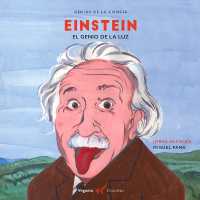- ホーム
- > 洋書
- > 英文書
- > Science / Mathematics
Full Description
This book draws its inspiration from Hilbert, Wittgenstein, Cavailles and Lakatos and is designed to reconfigure contemporary philosophy of mathematics by making the growth of knowledge rather than its foundations central to the study of mathematical rationality, and by analyzing the notion of growth in historical as well as logical terms. Not a mere compendium of opinions, it is organised in dialogical forms, with each philosophical thesis answered by one or more historical case studies designed to support, complicate or question it. The first part of the book examines the role of scientific theory and empirical fact in the growth of mathematical knowledge. The second examines the role of abstraction, analysis and axiomatization. The third raises the question of whether the growth of mathematical knowledge constitutes progress, and how progress may be understood. Readership: Students and scholars concerned with the history and philosophy of mathematics and the formal sciences.








